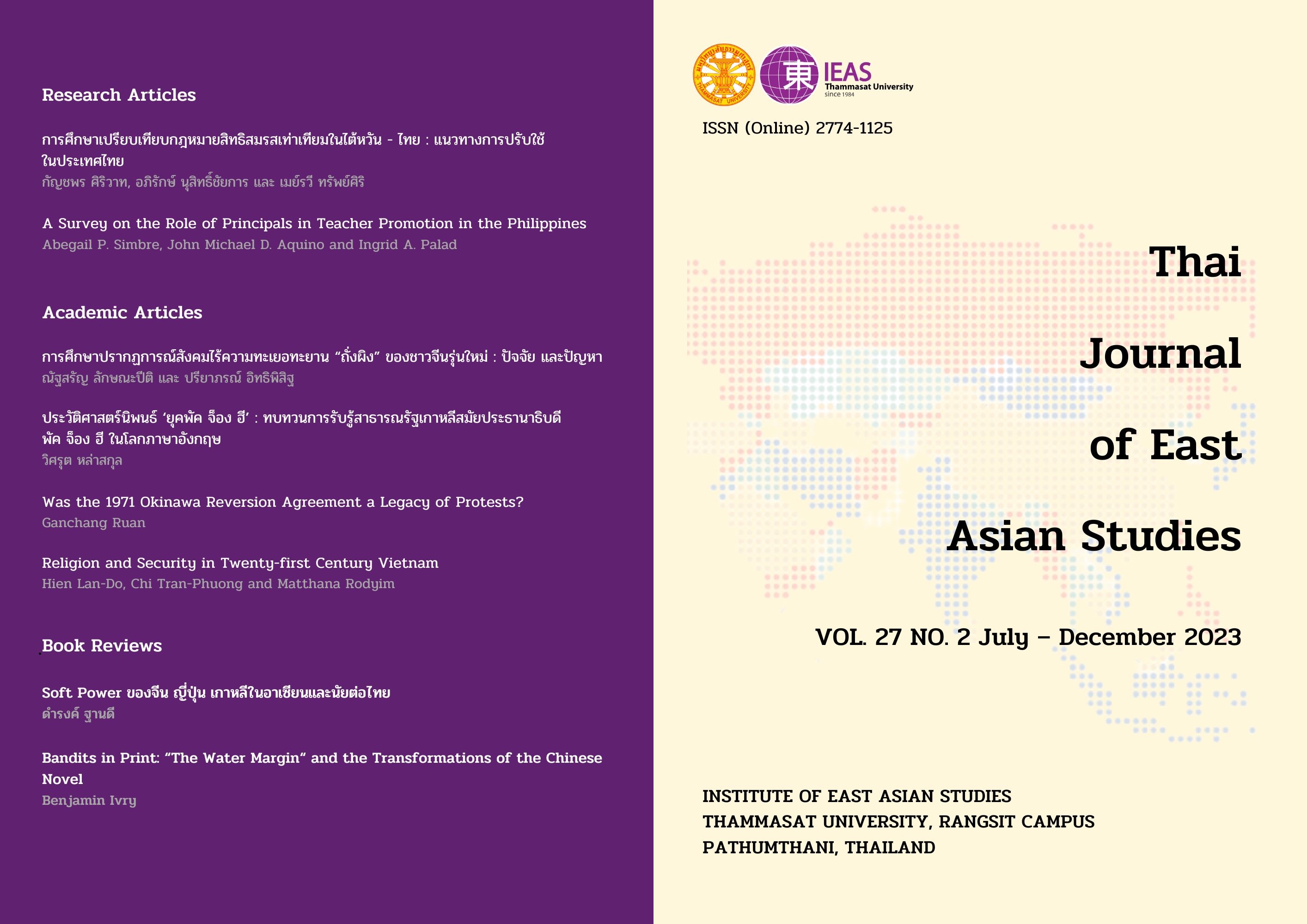Religion and Security in Twenty-first Century Vietnam
Keywords:
Religious security, Vietnamese religion, Social securityAbstract
The social perception of religion engages with a superhuman belief system to restore peace to a populace and help believers cope with life’s challenges. Research has suggested that when religious rituals are performed, a mechanism is created to reduce mental illness and heal disease. Religion is also a catalyst of spiritual and societal stability. However, religious faith may also inspire unethical behavior such as murder, suicide, or threats to life, tranquility, and sociopolitical equilibrium. The symbiosis between religion and social insecurity is well-known. Worldwide religious mysteries and conflicts are increasing, complicating the shaping of national security and creating political risks, especially for nations with religious and ethnic diversity. The relationship between religion and national security may be exploited until the population becomes hostile to the government. Wary of prejudice against religion, believers may try to use religion to resolve conflicts and maintain national security. In this way, religion may play a dual role in security issues, creating and upending social order and tranquility. Through innovations, concepts, and peace movements, security may be promoted. Religion may inspire political, social, and religious security. The last-mentioned has become an important strategic issue in many nations as a key topic in economic transactions, trade and international integration. As Vietnam profoundly integrates into the world economy, religious security becomes more vital. This paper will analyze how religious security has become a basic condition for Vietnamese international political, economic, social, and cultural interactions.
Downloads
References
Boutin, J. K. (2011). Balancing act: Competition and cooperation in US Asia-Pacific regionalism. Japanese Journal of Political Science, 12(2), 179-194. https://doi.org/10.1017/S1468109911000028
Do, H. T. T., Do, H. L., & Tran, C. P. (2022, December). Policy on Religion and Belief to Flourish Spiritual Tourism in Vietnam. In Conference on Contemporary Economic Issues in Asian Countries (pp. 557-567). Springer Nature Singapore.
Emmers, R., Caballero-Anthony, M., & Acharya, A. (2006). Studying non-traditional security in Asia: Trends and issues. Marshall Cavendish Academic.
Nguyen, A. C., Tran, T. N. T., & Nguyen, H. A. (2021). Main Characteristics of Belief and Religious Living in Vietnam. The Russian Journal of Vietnamese Studies, 5(1), 118-138.
Raghavan, Vasantha Rao (2007). India and ASEAN: Non-Traditional Security Threats. Chennai: EastWest Books
ReliefWeb (2023, March 14). Global Terrorism Index 2023. ReliefWeb. https://reliefweb.int/report/world/global-terrorism-index-2023
Robb, J. (2007). Brave new war: The next stage of terrorism and the end of globalization. John Wiley & Sons
Smock, D. R. (Ed.). (2006). Religious contributions to peacemaking: When religion brings peace, not war. US Institute of Peace.
Tan, D. P., & Fukushima, S. (2010). Transformation of socio-economic structure of Ho Chi Minh City under the Doi-Moi policy and the accompanying globalization process. Meijo Asian Research Journal, 1(1), 3-16.
Van Dao, N., & Van, V. H. (2020). Religious policy and freedom of religious activity at Vietnam. Palarch's Journal Of Archaeology Of Egypt/Egyptology, 17(9), 2496-2513.
Wolffe, J., & Moorhead, G. (2014). Religion, Security and Global Uncertainties. Open University.
Yue, C. S. (1994). Asia-Pacific Foreign Direct Investment: An APEC Investment Code?. APEC: Challenges and Opportunities, 2, 113.
Downloads
Published
How to Cite
Issue
Section
License
Copyright (c) 2023 Thai Journal of East Asian Studies

This work is licensed under a Creative Commons Attribution-NonCommercial-NoDerivatives 4.0 International License.



